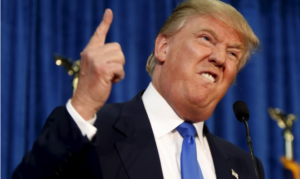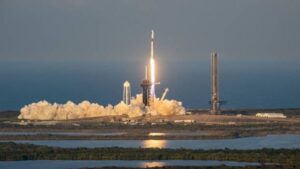Elon Musk’s artificial intelligence startup, xAI, is under intense scrutiny after reports surfaced that the company has been operating unlicensed natural gas-powered generators at its Memphis data center. The controversy has sparked outrage among environmental groups, local residents, and public health advocates, who accuse the company of endangering public health and violating environmental regulations.
The Power Behind the AI
xAI, Musk’s ambitious AI venture founded in 2023, is aiming to compete with the likes of OpenAI and Google DeepMind. The company’s AI chatbot, Grok, and other machine learning models require massive computational power, which in turn demands a substantial, uninterrupted electricity supply.
To meet this need, xAI established a sprawling facility in South Memphis, an area already burdened by industrial activity and pollution. To power the data center, the company brought in 35 mobile natural gas turbines capable of generating over 400 megawatts of electricity — enough to power more than 300,000 homes.
But therein lies the controversy: according to local environmental groups and recent investigations, these turbines have been operating without proper environmental permits, making them technically illegal under the Clean Air Act.
Unlicensed Operations and Environmental Impact
The Southern Environmental Law Center (SELC) and other advocacy organizations allege that xAI has been running the facility in clear violation of federal and state air quality laws. The turbines emit nitrogen oxides, formaldehyde, and other pollutants known to contribute to respiratory issues, heart problems, and certain types of cancer.
South Memphis is a predominantly Black, working-class neighborhood that has long struggled with the consequences of industrial pollution. The addition of unregulated turbines only adds to the community’s environmental and health burden. Residents have reported increased concerns over air quality, and health professionals warn that vulnerable groups — including children, the elderly, and people with pre-existing conditions — are especially at risk.
“The people of South Memphis deserve clean air and a safe environment, not secret operations pumping out dangerous pollutants,” said an SELC spokesperson. “This is about corporate accountability and protecting communities that have historically borne the brunt of environmental injustice.”
Regulatory Inaction and Corporate Silence
The Shelby County Health Department confirmed that xAI had submitted applications for the necessary permits but continues to operate without them. As of now, there is no clear timeline for when or if those permits will be approved. Meanwhile, the turbines remain active, powering the facility’s AI infrastructure.
In a recent county commission meeting, xAI representatives were notably absent, further frustrating local officials and residents seeking transparency and answers. Environmental groups have petitioned the Tennessee Department of Environment and Conservation (TDEC) to issue an emergency cease-and-desist order and daily fines until the turbines are either properly permitted or shut down.
Local leaders have voiced their frustration as well. “We can’t let any company — no matter how famous its owner is — break the rules and put people at risk,” said one Memphis city council member. “Our community’s health should not be the price of technological progress.”
Bigger Questions About AI’s Environmental Footprint
While xAI is currently the target of public outrage, the situation underscores a broader issue within the rapidly growing AI industry: the enormous energy demands of modern AI models. Training large language models and running sophisticated AI applications consume massive amounts of electricity, often outpacing what public grids can reliably provide.
In response, many companies are turning to on-site power generation using fossil fuels like natural gas — a short-term solution that runs counter to global efforts to reduce carbon emissions and combat climate change.
“The AI boom is creating a new kind of pollution crisis,” noted a professor of environmental policy at the University of Tennessee. “These companies are chasing innovation without considering the environmental cost. What’s happening in Memphis could easily become the norm if there isn’t strong oversight.”
Community Pushback and Legal Challenges
South Memphis residents, already living in one of the country’s most polluted zip codes, have vowed to keep up the pressure. Community meetings and protests have been organized to demand accountability from xAI and local regulators alike.
“There’s always some company coming in here, acting like our lives don’t matter,” said one long-time resident. “It’s not right that we have to live in fear of what’s in the air because some billionaire wants to play with his computers.”
Legal experts suggest that xAI could face significant penalties if it’s proven that the company knowingly operated without proper permits. Fines for Clean Air Act violations can reach tens of thousands of dollars per day, and public pressure may force regulators to take stronger actions if the controversy grows.
A Crossroads for Tech and Ethics
As AI technology races ahead, cases like xAI’s Memphis facility highlight the ethical dilemmas surrounding rapid innovation. Tech companies eager to scale up their infrastructure must now confront the environmental consequences of their growth — and the social responsibilities that come with it.
For Elon Musk, who has long positioned himself as a champion of sustainability through ventures like Tesla and SolarCity, the controversy marks a sharp contradiction. It also raises serious questions about whether the AI industry can balance progress with principles.
As investigations continue, the eyes of Memphis — and perhaps the world — will be watching closely to see how this conflict between innovation, corporate power, and community health unfolds.







